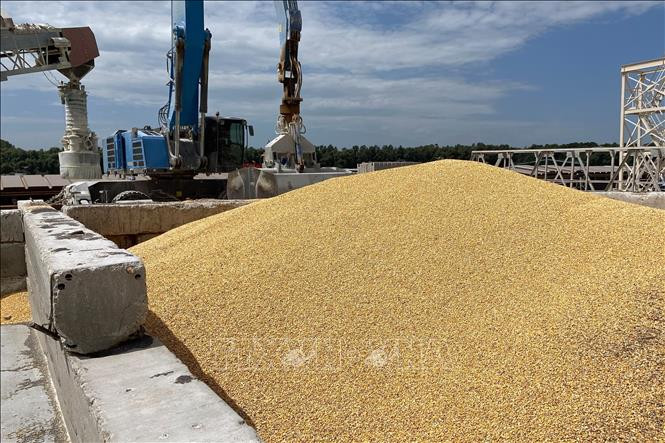Poland and Ukraine announced on October 3 that they had agreed to speed up the transit of Ukrainian grain through Poland to third countries, a first step in resolving the “grain war” between the two countries.

According to AFP news agency, within the framework of the agreement between Poland, Ukraine and Lithuania, Ukrainian grain exported to markets in Africa and the Middle East will be transported directly through Poland instead of first having to pass through inspection at the Polish-Ukrainian border.
“From tomorrow, grain transiting through Lithuania to world markets will be checked at Lithuanian ports, not at the Polish-Ukrainian border,” Polish Agriculture Minister Robert Telus told reporters. Telus said this was an important issue.
In May this year, the European Commission (EC) banned imports of Ukrainian wheat, corn, rapeseed and sunflower to Bulgaria, Hungary, Poland, Slovakia and Romania.
These countries say the influx of cheap, duty-free grain from Ukraine is causing domestic production to fall in value, hurting local farmers and the economy.
The ban expired on September 15 and the EC decided to lift the temporary restrictions on Ukrainian grain. However, Poland, Hungary and Slovakia still decided to impose unilateral restrictions on grain imports from Ukraine.
In 2022, about 60% of Ukraine's grain was transported through the five Eastern European countries mentioned above via the "solidarity corridor", replacing the transit route through the Black Sea that has encountered many obstacles since the conflict in Ukraine broke out in late February 2022.
Grain is very important to Ukraine. In 2021, Ukraine exported about $27 billion worth of agricultural products, accounting for half of the country's exports.
According to Tin Tuc newspaper